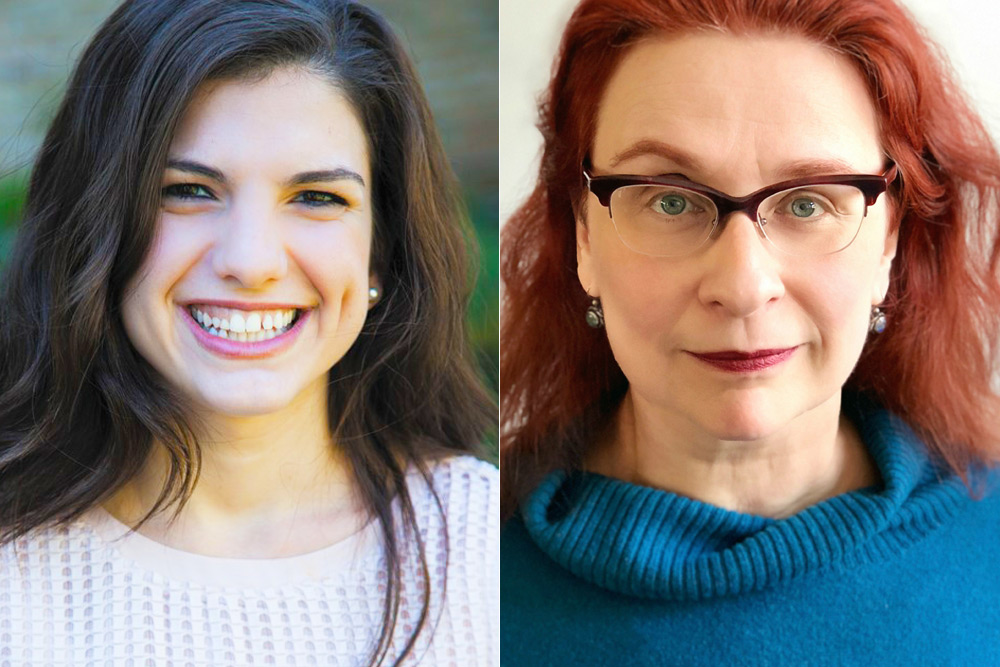Young writers often dream of studying under their literary idols, and for Julia Fine, that idol was Audrey Niffenegger. Growing up in Maryland, she read Niffenegger's The Time Traveler’s Wife over and over again, even copying her favorite passages down by hand in a notebook. So when it came time to choose a graduate school, Fine applied to Columbia College Chicago, where Niffenegger teaches in the creative writing program.
That was three years ago. This week, Fine publishes a book of her own—with a blurb from Niffenegger on the back cover.
Fine’s novel, What Should Be Wild, combines the intrigue of a literary mystery with the mythology of fairy tales. It follows a young woman, Maisie Cothay, who is born with the ability (and curse) to kill or revive anything she touches. The book also tracks Maisie’s ancestors, generations of women dating back to the 7th century who have been preserved by the wilderness that abuts her family’s country estate.
Without hyperbole, it’s one of the best debut novels I’ve ever read, and the first page made me gasp out loud on the Halsted bus. I spoke with Fine and Niffenegger about the book, their creative relationship, and the importance of community to Chicago writers. You can meet them both at the book launch party for What Should Be Wild on May 24 at Women & Children First Bookstore.
How did What Should Be Wild come together at Columbia College?
Fine: I came into the program with another book in mind [about a dystopian future Chicago] and worked on that book with Audrey for a semester. One day I said to her, “Instead of using the thing we've been working on, do you mind if I bring in this weird little short story?” And that was what became What Should Be Wild. It was the first few sentences of the novel, combined with what later became a chapter in the middle.
Niffenegger: The class was called Big Books, and it was for people writing novels. I started the class by saying, “Give me whatever you've already got,” and somebody gave me 17 pages, and somebody else gave me 600. The book Julia had been writing was a dystopia, so the characters were not having a very nice time. And so when Julia popped up with this—it's like if somebody asked me to eat an entire ox and then gave me a lemon sorbet. The more she wrote, the more delightful it became. And the class went wild for it. They went absolutely ballistic for this new thing. There was so much energy to it, something everybody could immediately sense. It gave off this kind of bat signal.
How did your creative relationship develop? What impact did Audrey make on the book?
Fine: We met every two weeks for class, and then on the weekends for one-on-one conferences. A lot of the book came from Audrey saying “I wonder what's happening in this part of the forest.” After class, we met up for writing dates and bootcamps a few times, and when I was querying the book, she offered me advice. And then when I sold the book, she offered to read it and blurb it. So she's really been there to hold my hand and walk me through things every step of the way.
Niffenegger: Julia has such a lively mind, so it doesn't take much to get her going in a very fruitful direction. It was a pleasure to engage with somebody whose not only willing and disciplined but also quirky and funny.
How important is the concept of a writing community for you? Is Chicago a good place for it?
Fine: I'm relatively new to the Chicago literary scene, but everyone has been so welcoming and kind. Like a lot of young writers, I used to think if that I wasn’t in New York, nothing would ever happen. But now I think it's so much better to be in Chicago. People are more accessible.
Niffenegger: One of the things about Chicago—not only its writing community, but also some visual artist communities—is that there’s a lot of generosity, a lot of willingness to share. People turn each other on to agents and help each other out with all sorts of stuff. Especially in the last few years, there’s been an effort to connect everybody up with social events, because writers tend to stay where they teach or where they work. People are very alert to the idea that we need community.
Julia, where did the idea for this story come from?
Fine: I heard a story on NPR one morning about a case in Texas where a man was fighting for the right to take his pregnant wife off of life support, because she was brain dead and it was very clear that the baby was not going to survive. I started thinking, what if the circumstances were slightly different and the child did survive. And that’s what led to those first few sentences.
Audrey, what are you working on these days? Any updates on the The Time Traveler’s Wife sequel, The Other Husband?
Niffenegger: My husband Eddie Campbell and I have just done a book called Bizarre Romance, a short story collection where we've taken my short stories and turned them into comics and illustrated short stories. The Other Husband is coming along. It’s due to my editor in a couple of months.



